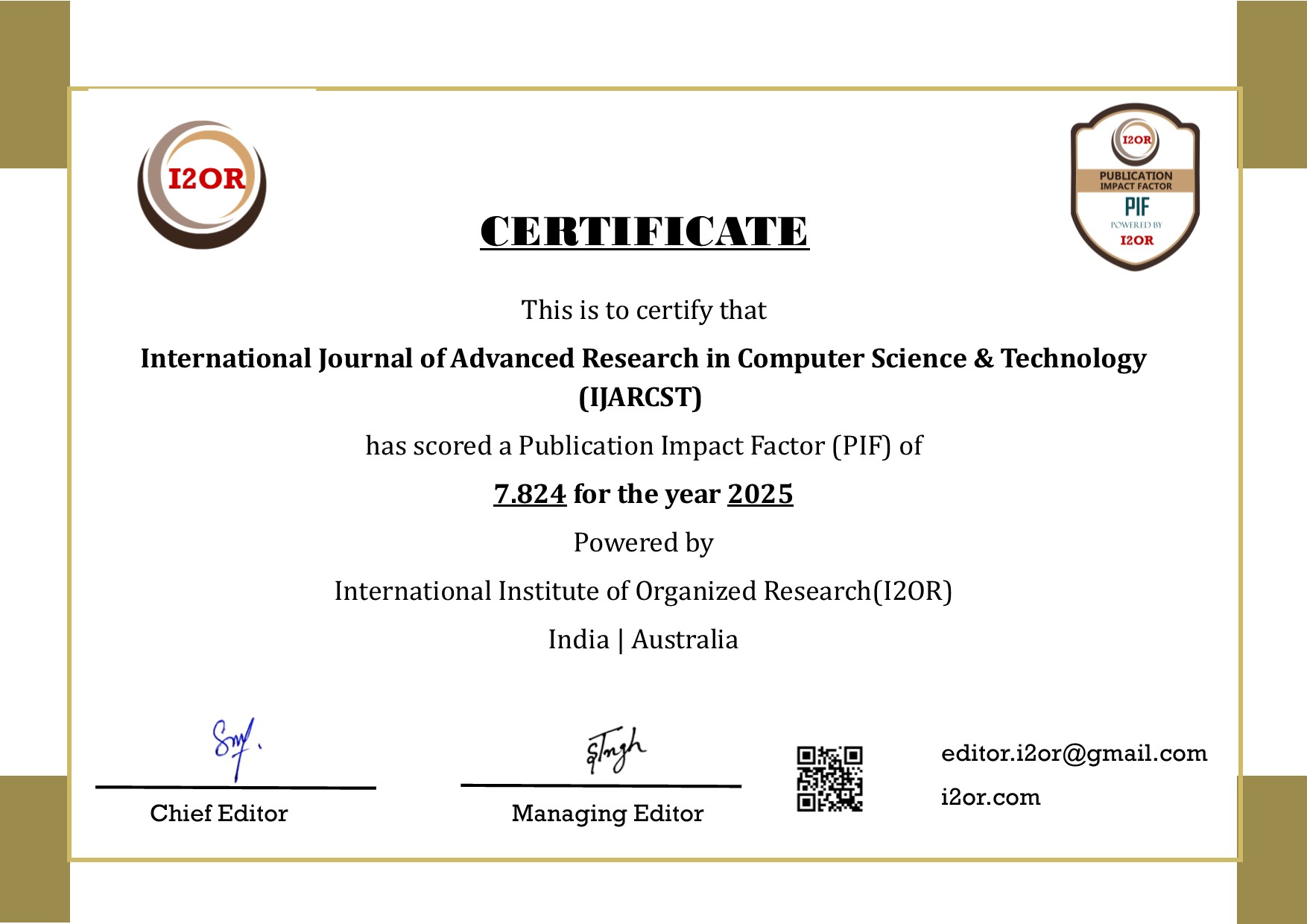Quantum-Resilient Cryptography: Preparing for the Post-Quantum Era
DOI:
https://doi.org/10.15662/IJARCST.2022.0501001Keywords:
Quantum-Resilient Cryptography, Post-Quantum Cryptography (PQC), Lattice-Based Cryptography, Hash-Based Signatures, Code-Based Cryptography, NIST PQC Standardization, CECPQ1 Hybrid Key Exchange, Cryptographic AgilityAbstract
The impending advent of quantum computers threatens to undermine classical cryptographic algorithms—particularly RSA and ECC—due to quantum algorithms like Shor’s, which can efficiently factor large numbers and solve discrete logarithms. This paper explores quantum-resilient cryptography, focused on mathematical frameworks that resist quantum attacks, including lattice-based, code-based, hash-based, multivariate, and isogeny-based schemes. We provide a structured methodology: reviewing quantum vulnerabilities, surveying postquantum candidates, analyzing standardization efforts (e.g., NIST's PQC process), and evaluating practical deployment challenges. Key findings highlight that lattice-based schemes (e.g., CRYSTALS-Kyber, Dilithium) and hash-based signatures (e.g., SPHINCS+) show strong security and performance trade-offs, while code-based systems like McEliece remain robust but carry large key sizes. Hybrid approaches like Google’s CECPQ1 demonstrate early deployment viability. However, challenges include performance overhead, large keys/ciphertexts, integration issues, and lack of quantum resilience testing due to limited quantum hardware. We propose a secure deployment workflow: threat assessment, algorithm selection, hybrid fallback strategies, interoperability testing, and phased migration. Benefits include future-proof security and cryptographic agility; drawbacks involve increased computational cost and implementation complexity. Results affirm that while no single scheme is ideal, a multi-algorithm, standards-aligned strategy is necessary. The paper concludes by emphasizing urgent migration planning and outlines future work in optimizing PQC performance, refining hybrid protocols, and developing quantum-capable testing frameworks.
References
1. Trail of Bits (2018). A Guide to Post-Quantum Cryptography.
2. Gheorghiu & Mosca (2019). Benchmarking quantum cryptanalysis.
3. NIST PQC Standardization overview (MDPI).
4. Overview of PQC approaches and NIST finalists (IIETA).
5. Google CECPQ1 hybrid key exchange (2016).
6. PQC algorithm categories (Techopedia).
7. Post-Quantum Cryptography beginner's guide (Webopedia).
8. PQC challenges and limitations (Biolecta).
9. Implementation inefficiencies and integration challenges (Qwerx).
10. Security implications of quantum computing on cryptography (Axios).
11. Standardization bodies (ETSI, ISO).





